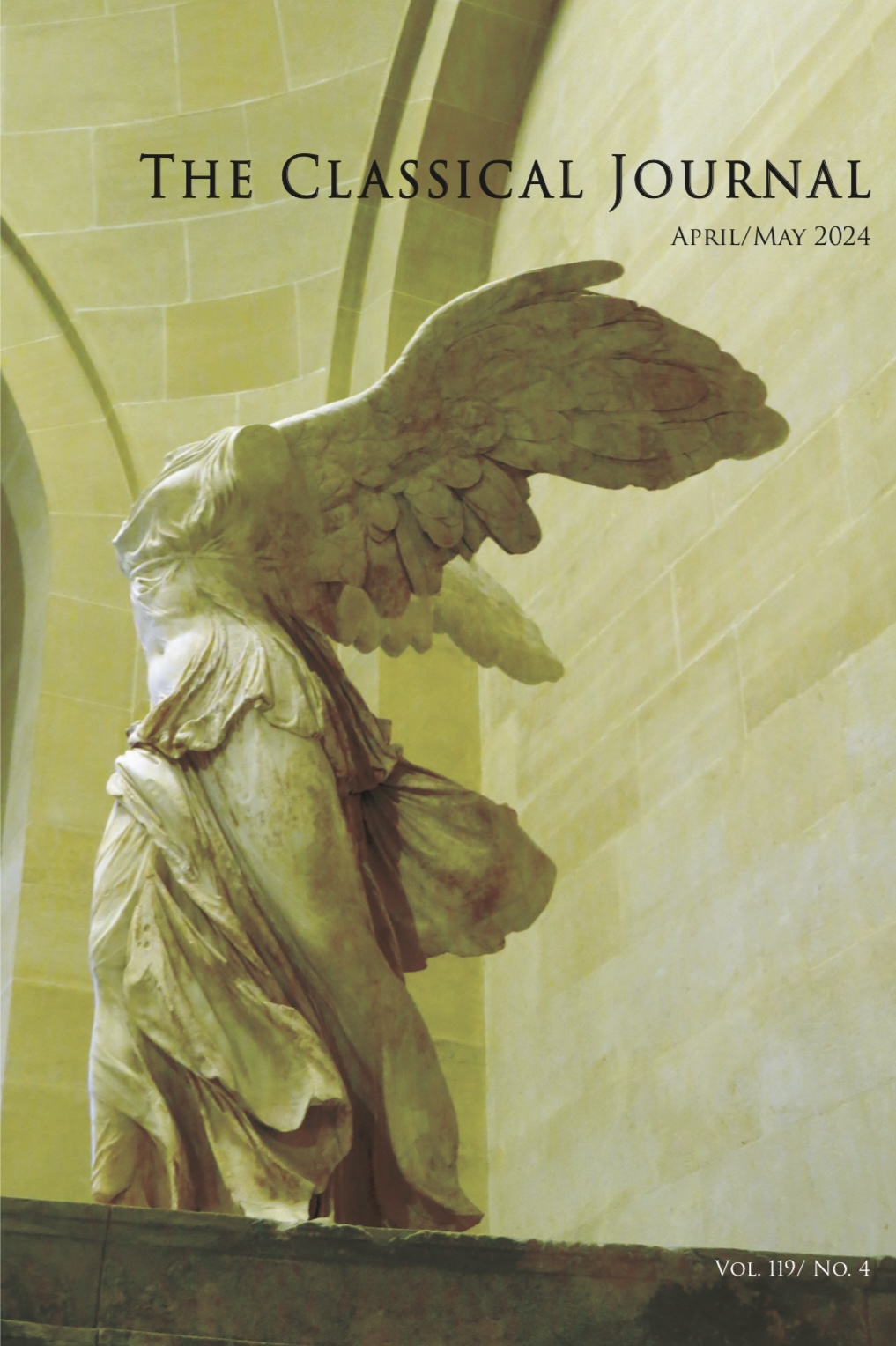The following articles are contained in CJ
106.1
Abstracts of Articles
SICILIAN TYRANTS AND THEIR VICTORIOUS BROTHERS II: THE DEINOMENIDS
In Part II of this two-part article I analyze Pindar's
and Bakchylides' allusions to fraternal success in poems for Hieron
(P. 1.79-80; B. 5.31-6, 3.17-19), and compare the references to
fraternal success in poems for the Emmenids analyzed in Part I
(P. 6.44-54; O. 2.46-51; I. 2.23-9).
"OLD" PAN AND "NEW" PAN IN MENANDER'S DYSKOLOSDS
While in the classical period Pan is often an aggressive
and dangerous figure, in Menander's Dyskolos he is depicted as urbane,
civic-minded and benevolent, and thus in closer alignment with the
general presentation of the god by Hellenistic authors.
Menander highlights Pan's evolution through the distribution of his
antithetical traits between two dramatic characters, the wild,
reclusive Knemon and the divinity of the prologue. "Old" Pan/Knemon
expresses civic disengagement and the ferocity of the undomesticated;
"New" Pan mediates between country and city, and adopts
inclusiveness and greater openness to communal integration.
LEAVING TROY AND CREUSA: REFLECTIONS ON AENEAS' FLIGHT
Virgil shapes the episode of Creusa's disappearance in Aen. 2
after the models of Orpheus and Eurydice in Georgics 4 and of Hector and
Andromache in Iliad 6. Comparison with these husband-wife scenes
challenges a straightforward understanding of Aeneas' pietas.
While displaying the contradictions of Aeneas' character, the loss of
Creusa emphasizes his forgetfulness, which is consistently present
throughout Aen. 2.
CICERO AND PHILOSOPHY AS TEXT
Philosophy for Cicero implies not only a way of life taught
orally in a school but also reading and writing. This foreshadows his
influence on the later Latin tradition, which identified philosophy with
the meaning and evaluation of texts, and ultimately replaced its conception
as an autonomous way of life. I propose four factors in Cicero's influence:
initiating the tradition of Latin philosophical prose; developing its
vocabulary; the choice of a rhetorical over a dialectical mode;
and locating discussion in the context of libraries, reading and book production.
EURIPIDES' NURSE: PERFORMANCE AS PEDAGOGY
Based on the writer's personal experience
performing the role of Nurse in Medea, this paper argues that there are within
the text many clues to inflection, pace and gesture, and that it is likely that
Euripidean stage performance was, to a significant extent, realistic.
This paper further suggests that there is significant value to students in
memorizing and performing in Greek, and suggests ways in which parts may be
subdivided for classroom use.


